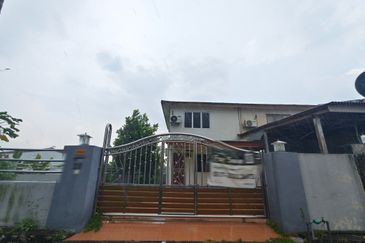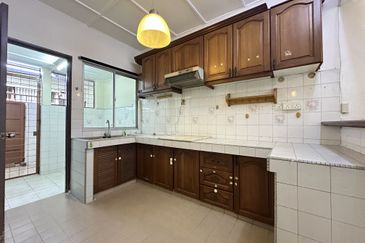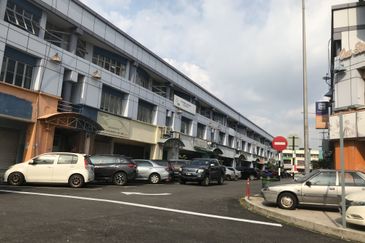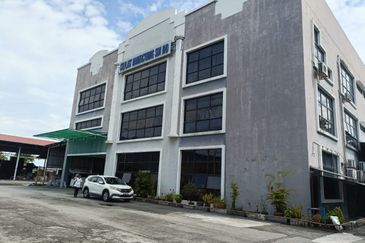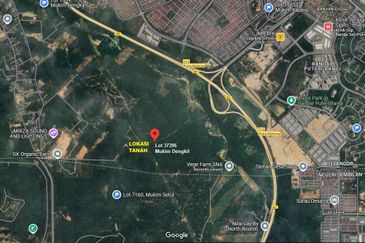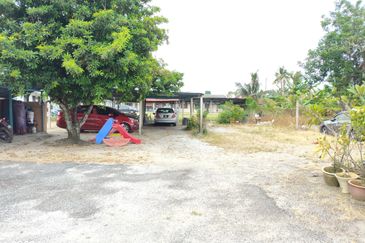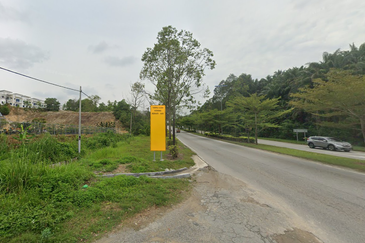
After staying in your condominium for many years, you decide to contribute your expertise to the Management Corporation (MC) and volunteer to be a part of the committee. After getting on board, you meet Mr A who also sits on the committee and he seems very knowledgeable about how a condominium should be managed.
Read also
Owners, never underestimate your power
One day, during an impromptu meeting, Mr A proposes an idea: - The sinking fund has been growing steadily and because the building has been maintained well over time and is still quite new, not much upgrading or a major overhaul is immediately needed.
“With the interest rate in the banks at an all-time low, why don’t we take the sinking fund out and invest into this fast-growing business I heard about? Since I know the business will surely make us money, we can take a small share of the profit and return the rest of the sinking fund into the account later. We are doing the homeowners a favour anyway!” declares Mr A.
You think to yourself – why not? You are not in risk of any penalty if this action were to leak out anyway as it wasn’t you but Mr A who suggested. If anything goes wrong, Mr A will be liable. However, should everything were to go smoothly, you get a share from the investment into this so-called profitable business. Moreover, since the money will be returned to the bank account, so you are not stealing. Nothing to lose, right?
If this was a real-life scenario, would you buy into Mr A’s plan? What if the plan fails? But, what if it doesn’t?
In reality, it is not so simple.

National House Buyers Association honorary secretary-general Datuk Chang Kim Loong explains: “If one of the committee members stole money from the accounts, the entire committee board would be vicariously liable for the action.
“Unless it was written in the meeting minutes that you objected to the action, you would be held accountable for the action”.
The mismanaging, misuse and abuse of sinking funds is not something new. The Commissioner of Buildings (COB) is currently investigating several cases of abuse of funds although the details cannot be revealed as of now, Chang tells EdgeProp.my.
Watch out for the red flags!
It is an irony. While on one hand it is often not easy to get volunteers to serve in the Joint Management Body (JMB) or MC, there is always a possibility that some are in it to serve their own agendas.
For more information of EdgeProp Malaysia’s Best Managed & Sustainable Property Awards 2021
View EdgeProp.my symposium on “Excellent Property Management 2021: Future-proof your investment in the new norm” videos
Future-proof your investment in the new in the new norm
After all, JMBs and MCs are empowered to manage the common areas of stratified developments, enforce by-laws and collect maintenance charges and contributions to the sinking funds and others.

Malaysian Institute of Property & Facility Managers president Adzman Shah Mohd Ariffin has listed below some of the common personal agendas of management committee members:
# Seizing the opportunity to access monies for selfish gain
# Seeking revenge for past actions taken against him/her by the management committee
# Seeking business deals by replacing existing vendors with friendly parties
“Such committee members will also tend to hang around the management office and interfere in the procurement of goods and services. They will always be recommending their contacts for the jobs to be carried out,” observes Adzman.
As for projects with significant unsold units, Adzman says unscrupulous developers who do not pay the management fees could also attempt to sit on the management committees to cover this up.
So, what should strata residents do?
Besides appointing a property manager who is responsible, capable and of high integrity, Adzman also recommends background checks on the management committee members. This is on top of all the statutory declarations and undertakings they might have signed.
Early signs of any ill intentions must be detected and addressed quickly. One way is to put into place proper standard operating procedures (SOP) especially in procurement and decision making, he says.
The SOP should spell out how goods and services can be procured in a transparent manner. The limits of authority should also be made clear in terms of approval of the amount to be expended and by whom.
Decisions should be voted on and made in the management committee meetings and not by any one committee member outside the meeting.
Any exercise to purchase goods or procure services must be done by tender or obtained at least with three quotation bids. The winning bidders should not be connected or related to any of the committee members, Adzman adds.
He also stresses a need to educate management committee members on how to carry out their duties under Act 757 of the Strata Management Act 2013 (SMA 2013).
“This way, they will be more aware of their responsibilities and are able to carry out their duties as required by the Act. The penalty for any breach should also be made clear to the committee members,” adds Adzman.
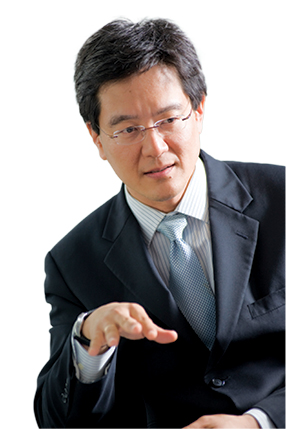
Meanwhile, HBA’s Chang cautions against those with “one-issue” management committee candidates who volunteer because they want to “take over” property management, working with unlicensed property companies or property managers.
“The latter may paint a glossy picture of what they can do through their “years of experience” or their so-called “knowledge of the SMA 2013”, but do they have the professional qualifications, management and technical experience and pass the stringent test of professional competency? Are they registered with the legislated Board of Valuers, Appraisers, Estate Agents and Property Managers (BOVAEP) (www.lppeh.gov.my), which is the sole statutory regulatory board governing property managers that issues licences to those registered ones in Malaysia under Act 242?,” asks Chang.
Chur Associates founder and managing partner Chris Tan offers this advice for strata homeowners: “As a preventive measure, ensure that the committee is not always made up of the same group of people”.
This is in line with SMA 2013 which states that the members of the management committee shall not be more than three consecutive terms. Whereas the term of the chairman, secretary and treasurer shall not be more than two consecutive years.
“There must always be new faces in the committee to ensure that actions are questioned because as the saying goes; experience is also knowing where the loopholes are.”
Another piece of advice from Tan: “Although there are people who are more vocal than others, it does not necessarily mean they are right”.
On the other hand, Real Estate & Housing Developers’ Association Malaysia (REHDA) deputy president, Datuk NK Tong says being contrarian is not a bad thing and just because someone is loud does not mean that he or she is “bad”.
“He or she could be pushing a particular point that needs to be heard, right? For example, a person feels that the building needs repainting. It doesn’t mean the person is bad just because everyone else wants to spend less,” Tong points out.
For him, the red flags would be when democracy is ignored, with committee members bulldozing their way through.
“Definitely there are instances where there are people who are loud and they come in just to scare everyone away,” observes Tong.
Adzman, Tan and Tong are in the judging panel of the EdgeProp Malaysia’s Best Managed & Sustainable Property Awards 2021 that recognises real estate that is sustainable and managed with excellence. Both MIPFM and REHDA are supporters of the Awards which is endorsed by the Ministry of Housing and Local Government. First of its kind, the Awards is aimed at raising the bar on Malaysian property management practices, benchmarking it against the best- in-class globally.
Perception vs reality
According to REHDA’s Tong, to bridge the gap between what is presumed to be the role of the management committee and what its responsibility really entails, committee members should enrol into a training programme or course to be educated on what they need to do when they sit on the board.
“A lot of MCs and JMBs, and even the property management agents are not aware of what they need to do. And these agents are the ones who are implementing the SOP. If the managing agents are not transparent with the SOP, the committee members will not know what their duties and responsibilities are.

“If you asked every committee member what the SOP are and whether they know what the COB have for them, I think 99.5% would say they don’t know,” says Tong, adding that management committee members should be trained within three months of being voted in.
Tong acknowledges that since the number of management committee members in the country is growing and COB might not be able to conduct the trainings on its own, such training courses could be outsourced.
“Everyone has the potential to be part of the JMB or MC committees at some point of time. And once you volunteer into the role, we understand that the responsibilities may be onerous. But if you understand what your role is, it can be easy to execute.
“Now, you represent these homeowners and the property. The unwritten rule is that you want to protect the value of the property, you want to make sure the funds are properly used. And these kind of training could really help,” Tong stresses, adding that those on the board must be answerable to the homeowners and the COB.
“While the best-case scenario would be for all potential or current stratified homeowners to attend such trainings, we understand that this may not be possible. However, those that sit on the committee should go for such courses,” Tong adds.
Over reliance on developer a No-No!
Chur Associates’ Tan highlights some JMBs may have taken the developer’s presence and goodwill in the JMB for granted – leading to an over-reliance and neglect in the transition phase.
The JMB is a body tasked with responsibilities such as managing and maintaining the common property before strata titles are issued for a stratified project while a MC takes over these responsibilities after the strata titles are issued.
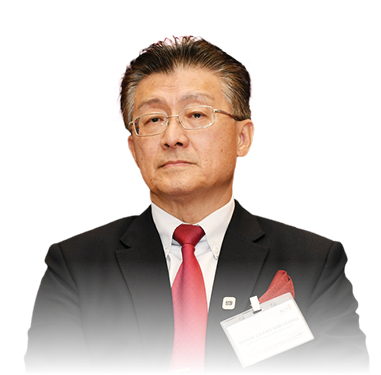
Under the law, a JMB is formed upon the convening of the first annual general meeting (AGM) and this is usually held with the assistance of the project developer. The AGM is to be convened within 12 months from vacant possession of the property.
Tan advises JMBs against setting an unrealistic maintenance budget based on the developer’s subsidised maintenance cost or contractor’s goodwill and warranties.
“When the building is new and is managed by the developer, the building is probably not 100% sold. For the developer to sell these units, they need to ensure that it is managed well and probably they are more than willing to put in more things at their own cost to make the place seem more attractive – hence what I mean by subsidised,” Tan explains.

Like REHDA’s Tong, Tan says JMB and MC committee members should undergo proper education about strata living. Basic fundamentals should be known at the very least.
When a building is new, problems such as cracks or leakages are not obvious and there is very little wear and tear. Owners and residents also tend to rely on the developer and contractor to settle the defects during the first two years, but this will not be permanent.
Get in the professionals – don’t be penny wise and pound foolish
While homeowners must learn how to manage the building on their own, one should not expect the same level of efficiency from management committee members who are all volunteers.
For instance, they may not know a comparative study must always be conducted to ensure things are not overdone – such as where 50 security guards are employed when in fact only five are sufficient for the task.
REHDA’s Tong notes that though there is an option for a JMB or MC to self-manage the property, it may not be the best idea because the JMB or MC may not be professionals with the expertise ranging from handling the accounts to setting up the AGM. There is also no benchmark for the self-managed JMB or MC to truly know if what they are doing is right.
“If you were to compare the property management fee to the value of the property, you are paying a very small percentage for professionals to come in and to manage your property. Self-managing or picking a real estate manager who offers very cheap fees [but can’t perform] is penny wise and pound foolish.
“If the property manager accepts such cheap fees, they could be making up for it from unscrupulous means through the job. Even if you opt to self-manage – fine, but you must remember that you are representing hundreds of homeowners in a development. There is no visibility for the MC. It is very hard for the MC to benchmark themselves and tell the homeowners they are doing the best,” opines Tong.
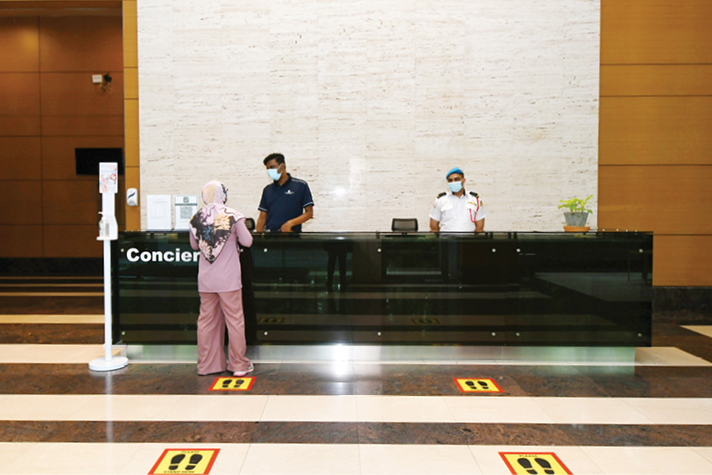
Meanwhile, MIPFM’s Adzman stresses that property managers must be independent and must look after the interest of the JMB or MC as a whole.
“In the event of any malicious or dubious intent from any member of the management committee, the property manager must ensure that such intent is curtailed, and the matter is brought to the knowledge of the other JMB or MC members for a decision or action to be taken. If the matter worsens, the property manager should seek the advice of the COB on how to address the problem,” Adzman counsels.
The COB, Chur Associates’ Tan says, has investigative powers and can enact corrective measures if necessary. The COB will be able to provide advice and guidance on any concerns or matter.
“By getting the COB involved on a regular basis, the management body will think twice before conducting anything dubious. Individual committee members can be held personally liable on their manners of conduct. In fact, there are relevant laws that can be applied just like to any company board member to hold them accountable for their actions,” Tan stresses.
EdgeProp.my has reached out to COB Kuala Lumpur for comments and advice but is still awaiting a response as at press time.
This story first appeared in the EdgeProp.my E-weekly on May 28, 2021. You can access back issues here.
Get the latest news @ www.EdgeProp.my
Subscribe to our Telegram channel for the latest stories and updates
TOP PICKS BY EDGEPROP
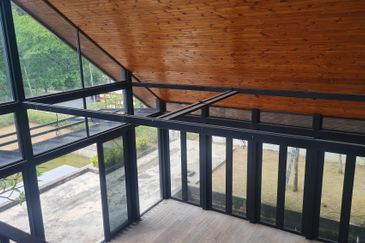
Seksyen 22, Petaling Jaya
Petaling Jaya, Selangor
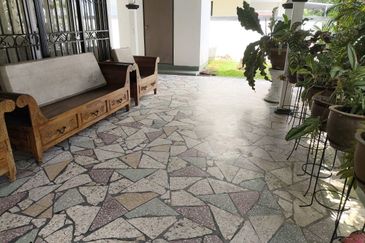
SS 21, Damansara Utama
Petaling Jaya, Selangor
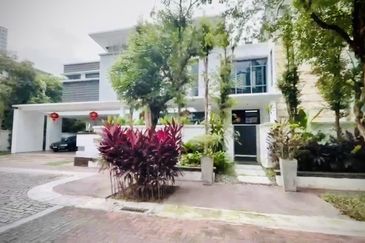
The Residence, Mont Kiara
Mont Kiara, Kuala Lumpur
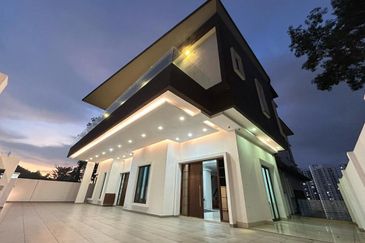
Country Heights Damansara
Country Heights Damansara, Kuala Lumpur
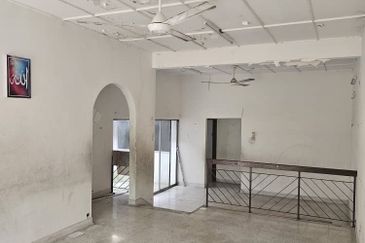
Taman Tun Dr Ismail (TTDI)
Taman Tun Dr Ismail, Kuala Lumpur
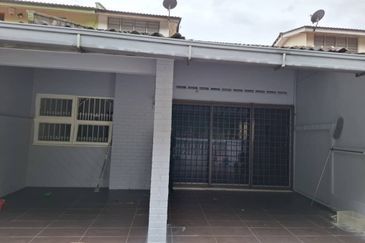
Taman Tun Dr Ismail (TTDI)
Taman Tun Dr Ismail, Kuala Lumpur

NEW LAUNCH CONDO @ KOTA KEMUNING
Kota Kemuning, Selangor

NEW LAUNCH LAKESIDE CONDO @ KOTA KEMUNING
Kota Kemuning, Selangor
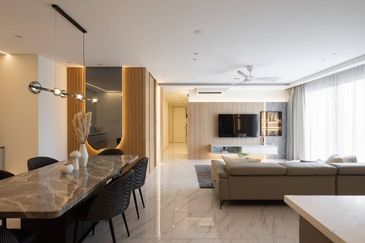
NEW LAUNCH LUXURY CONDO @ KOTA KEMUNING
Kota Kemuning, Selangor


